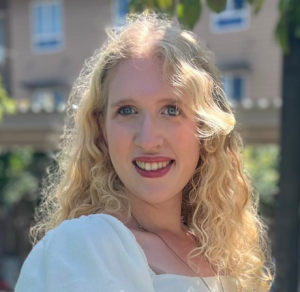
Elizabeth Korbatov

- So, tell us a little bit about Flowz. How did you come up with the idea behind it?
Ido Shechter – I was an intern at one of the biggest law firms in Israel, and I found that a lot of their methods for managing and gathering data were outdated, such as storing data in excel sheets, gathering data by email, and document generation was done manually without any automation.
There was no centralized place where data could be gathered and stored and where all document creation can be done automatically. Overall, it was just very inefficient and required a lot of manpower. The process was slow, and prone to error.
I figured that there must be a better way to share information and communicate with clients, and that’s when I thought of Flowz.
I wanted to create a cloud-based solution where everyone could connect and transfer information with the click of a button, and that was the foundation for Flowz.
That’s what laid the groundwork. I took my idea to my friend Itai Alon, who is a PHD student of computer science at the Hebrew University in Jerusalem, who I knew from the intelligence officers’ course we both did at the IDF. I told him about my desire to create a system that would help lawyers and law firms organize information efficiently. He connected me to his friend, Moshe Hatav, who was already an entrepreneur and a programmer with a lot of experience in the industry. The three of us had a conversation, and Flowz started after that meeting.
- What is the core mission behind Flowz, and how do you envision Flowz revolutionizing data management?
Itai Alon – It’s not only about data flow. It’s about organizing your daily tasks. When we want the system to do something, we put in the code, and the code does our job. The revolutionary piece is that everything is done automatically. Oftentimes, Lawyers organize information inefficiently. They have data from WhatsApp, mail, excel…we want to integrate the information, so all the data is in one system. Lawyers can also make mistakes when they copy paste from one platform to another, so we tried to solve this by creating a system that collects and manages data efficiently.
- How has Flowz stream evolved through the years? How have technological changes impacted the way your system works?
Moshe Hatav – The first version of Flowz was created using simple python software. From there, Itai and I have continued to develop the product. After we perfected the simpler version of the product, we were thinking about how we could take it a step further.
Itai Alon – We thought about making it widely applicable to multiple professions. The first product was very specific, based on what Ido had observed, and based on what Ido needed. Our last step was asking lawyers what they thought. We wanted to make the product as useful and as widely applicable as possible. The goal was to create a product that could handle a lot of traffic and a lot of clients.
- What has been your biggest challenge since Flowz Stream’s inception?
Ido Shechter – I think the biggest challenge has been persuading lawyers to use innovative software such as Flowz.
It’s hard to do. They’ve been doing things a specific way for many years. It’s hard for them to make that change, even if they know that it will reduce their costs and boost their efficiency. It’s hard for people to change the way they do things.
- We’re clearly living in unprecedented times. Wars and pandemics have impacted markets
everywhere, and I’m sure they’ve impacted the start-up world too. How do you adjust to these
Itai Alon – The process is longer now. The traditional model that you had an idea, secured investors, and were then able to launch your startup…that doesn’t apply anymore.
- Data streaming platforms have been growing and evolving in recent years. What emerging trends are shaping your industry?
Ido Shechter – I think the pandemic truly sped up technological development. During the pandemic, people needed to work remotely, even if they didn’t want to. They needed to adapt to new technologies. All industries, including the legal industry, had to become more open to technology and innovation.
Itai Alon – Prior to the pandemic, most lawyers didn’t want to use AI. Implementing new technologies into their practice during the pandemic changed their minds. They realized that if they didn’t become more comfortable with new technologies, then they’d fall behind. Understanding how to use technology is powerful. Small offices and solo practitioners can have the same impact as larger firms do simply by being comfortable with technology.
Moshe Hatav – If someone doesn’t jump onto new technological trends, they hurt their potential. AI tools give law offices the ability to handle tasks interns once did. If you’re a single lawyer, and you’re using those tools, you’re not really a solo practitioner, in a sense. Knowing how to harness AI is the equivalent of having two more lawyers and an intern at your disposal.
- AI is changing the world as we know it, and data streaming platforms are no exception. How do you think AI will continue to impact data streaming, and more specifically, Flowz.stream?
Moshe Hatav – Flowz does not currently use AI. Our platform leverages rule-based automation to streamline document creation and data management for legal professionals. In the future, we plan to integrate AI for smart data extraction, intelligent document suggestions, and automated summarization—always enhancing, never replacing, the lawyer’s expertise.
- As you know, I’ll be writing an article about your work on our blog here at Robus. We write articles about the Israeli legal market, but we also write articles for and about lawyers looking to start practices or move their firms to Israel. What advice do you have for aspiring entrepreneurs, especially as it pertains to the Israeli market?
Ido Shechter – I think that the Israeli market is unique, because it contains some of the most brilliant people in the world. Israelis have the desire to push boundaries and do things differently That is what makes Israel a very attractive place to start a startup. In other words, if you have an idea, Israel is the place to go for it!







